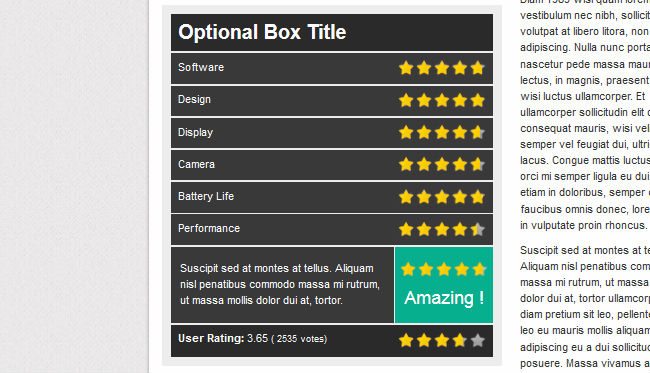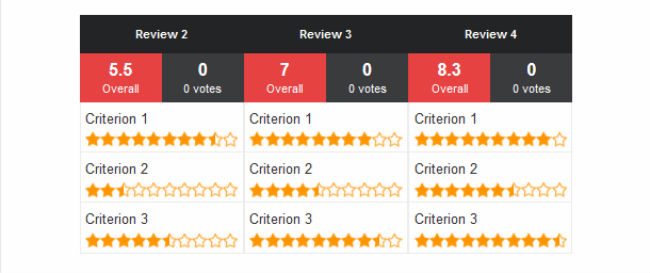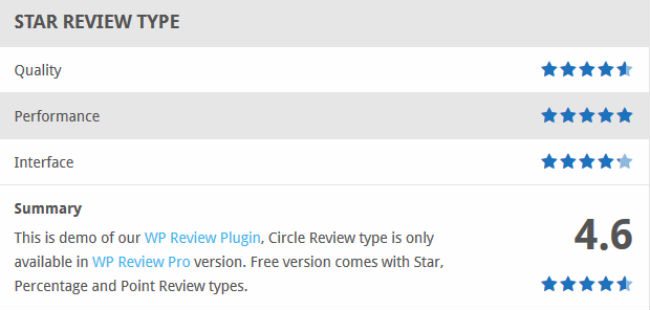Many people have seen the potential of the Internet for making a living online — some of whom have even make huge sums of money.
However, knowing where to start is one of the biggest road blocks faced by aspiring online entrepreneurs. There are so many options, not to mention conflicting advice, that many would-be webmasters simply never take action.
Now, because of its theme and plugin infrastructure, WordPress is the CMS of choice for most people — we’ve even written a guide to making money with WordPress. It’s also highly user friendly, requires minimal coding ability, and has an abundance of resources to help you use it.
You can build any type of website with WordPress, it’s just a matter of making the right choice.
One of the most prevalent types of money-making websites is the review website. These have been made popular in recent years thanks to a number of case studies involving average Joes launching a laser-focused niche review site, then turning a profit in just a few short months. For those of you interested in this sort of thing, the journey can be fascinating, and really inspirational, covering many of the frustrations we all face when starting out.
Of course, the premise of a review website is relatively simple:
- Build website
- Publish reviews
- Drive traffic to said reviews
- If your review persuades someone to buy the product, earn an affiliate commission
That’s not to say that running a successful review website is easy, though – it isn’t.
They actually require a relatively wide range of skills: niche selection, keyword research, high quality content, and SEO — just to name a few pre-requisites.
However, because of their straightforward business model, many beginner webmasters see the review site as a perfect starting point. This makes review sites of interest to new and experienced WordPress users alike.
The focus of today’s article is to explore the review site more closely. I’ll be providing a few tips for building review sites, as well as helping you add the relevant functionality to your website by recommending WordPress themes and plugins.
Review site tips
To kick things off, I’ll start by sharing some of my tips for any budding review-site-enthusiasts out there. These are tips I’ve gleaned from my own experience with review site projects several years ago.
1. Follow your passion
I’ve seen this written thousands of times before, but it really is the most important first step for any website – especially if you’re going to be writing the content yourself.
You can start a website in any niche imaginable, so it just makes sense to work on one you’re passionate about and have existing knowledge of. It really does make it that much easier to commit long-term to a project that means something to you.
Remember who you’re writing for: people who want to buy a particular type of product, and have even taken the time to go online to help them make the best purchase possible. In other words, other people who are passionate about the niche – niche-enthusiasts.
Your passion will be reflected in your content, and this will determine how likely they are to trust your recommendations – these people are probably already somewhat knowledgeable on the niche, and will see straight through lifeless, uninspired content.
2. Aim big
Personally, I think the micro-niche review site is dead – and probably has been for some time now.
The online community is wiser, and less likely to value the opinion of a “spammy” looking website, like buythebestfootspa.net. And really, that’s a positive step forward, as it encourages webmasters to put more effort into building their website.
If you throw together a five-page website to “trick” an audience into buying products via your affiliate links, don’t expect visitors – or Google – to take it seriously.
I want to avoid throwing around too much lingo (like “authority site”), as I think that, too, is outdated. However, my second tip is that you should aim big with your review site – in terms of content, audience, and scope.
Look to build something you are genuinely proud of, that genuinely serves an audience. Pack your site with news, advice, and tutorials alongside your reviews to comprehensively cover a topic. There is far more income-potential in an ambitious project, and the added credibility will make readers more likely to trust your reviews.
3. Add value
When putting together a strategy for your website, it is important to evaluate your competition. What are their strengths and weaknesses? What would you do differently to them?
If you want your website to succeed, it needs to be on a par with what’s already out there at the very least. However, it’s more than likely that you’ll need to build something better – whether in terms of quality content, or bringing something new to the table.
When you build a review website, it must add some sort of value to a reader’s decision making process.
If you simply rehash what’s already out there, how will a reader find this valuable? More often than not, I see a review site repeating the information provided by the product seller on their own sales page. If a person can go directly to source to get the information, your website is adding nothing of value – it’s effectively redundant.
Sure, you might pick up a few commissions from people who get lost on Google, but you haven’t created the foundations of a real business.
4. Monetization strategy
After spotting a potential niche, the next step is to work out the practicalities – namely, how is your website going to generate revenue.
You should look to identify all websites that stock the products you want to review, and weigh them up one by one. You need to look at a store’s prices, affiliate scheme (if there is one), and credibility, then narrow it down to your best options.
For example, John’s Widget Store might offer a better commission rate, but will people choose to buy there over Amazon? Probably not.
It’s also important to work out what the standard commission rate is. Earning a 5% commission on a $20 product will only net you $1, which means you’ll have to drive a lot of conversions to make the venture worthwhile.
5. International customers
My final tip is to always consider an international audience – this is especially important if you’re looking to earn commissions from Amazon’s affiliate scheme.
If you only provide a link to Amazon.com, you’re missing out on commissions from people in other countries. The US might make up the bulk of your audience, but you don’t want to completely ignore the rest of the world.
At the end of your review, all you need to do is provide a link for people in different countries. It takes just a few extra seconds, and can significantly increase the earning potential of each review – and, in the highly competitive world of review websites, this is of fundamental importance.
How to build a review website: WordPress plugins
Having shared some of my review site tips, let’s turn our attention to building the best review site possible.
Review websites are big business, and as a result a wide variety of WordPress plugins exist to add review site functionality to a WordPress powered website.
Here are some of my favorites:
Taqyeem ($16)
Taqyeem allows you to add a stylish summary box to your content to display the key points and display an overall rating.
The summary box is fully customizable: the plugin supports unlimited colors, over 500 Google fonts, and an unlimited number of criteria. You can also choose between a star, point, and percentage rating system.
Taqyeem adds the schema.org markup to your article, too, which tells Google to add a “Review” rich snippet to your search result – great for boosting CTR.
Reviewer WordPress Plugin ($24)
It’s not always enough to review just a single product. Sometimes you need to offer a comparison between all the available choices to help visitors make the right decision.
The Reviewer WordPress Plugin lets you add product comparison tables to a website. There are nine stylish themes to choose from, and each one has plenty of customization capabilities.
If comparisons are only something you do occasionally, the plugin can also be used to add a reviewer recap box at the top or bottom of posts.
Amazon Link Engine (FREE)
If you’ve read my review site tips above, and want to start earning global commissions (see point 5!), then the Amazon Link Engine is a hassle-free way to do so.
The plugin localizes all your Amazon links, so when an international visitor clicks one they are redirected to their local Amazon store – complete with your affiliate ID. This is done automatically, which can save you a lot of time.
Sometimes products differ between stores, and so Amazon Link Engine uses a patented algorithm to take your visitor to the most appropriate product.
EasyAzon 3 (47)
EasyAzon 3 is another fantastic premium plugin available for those of you who wish to monetize their review sites via the Amazon Associates scheme.
EasyAzon allows you to add localized affiliate links to your website at the click of a button – this means you won’t miss out on international commissions.
The plugin is also designed to maximize click-throughs and conversions. You can add pop-up Amazon affiliate links to your website (use in moderation), and, when a visitor clicks through, you can choose to automatically add the product to their basket, for a frictionless checkout.
WP Review Pro ($25)
WP Review Pro is a speed-optimized plugin for adding review functionality to a WordPress website.
The plugin supports stylish, minimalist review summary boxes, which can be displayed anywhere on your website using a simple shortcode. The review boxes are fully customizable, and you can use a star, circle, point, or percentage rating system. The boxes are fully responsive, too, and include an eye-catching animation.
As an added bonus, WP Review Pro also adds your rating to the top corner of your thumbnails, encouraging readers to click through to read your review.
Final thoughts
Adding reviews to your website is a great way to engage your audience and generate some affiliate commissions – you don’t have to build a dedicated review website, either, you could choose to add reviews alongside your existing content.
This article provides you with a few tips for getting started, as well as some great plugins to add review functionality to your website.
Review sites aren’t always held in the highest regard – largely down to “old school” micro-niche websites – but if you take one seriously, put the required effort in, and review products with integrity, you can do well. In fact, some of the biggest sites on the Internet are review sites, or are heavily depended on reviews, which is an indicator of their potential!
Have you built a review site? Share your thoughts and experiences in the comments section below!
 Shaun Quarton is a freelance blogger from the UK, with a passion for online entrepreneurship, content marketing, and all things WordPress.
Shaun Quarton is a freelance blogger from the UK, with a passion for online entrepreneurship, content marketing, and all things WordPress.






11 Comments